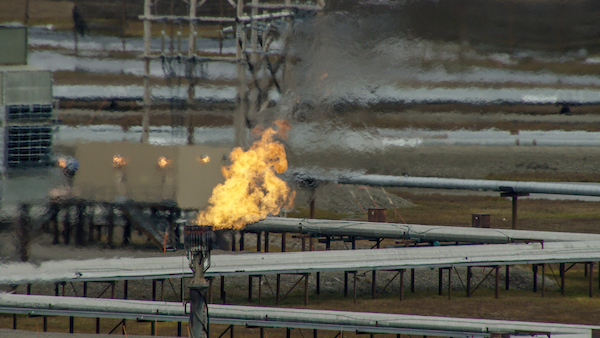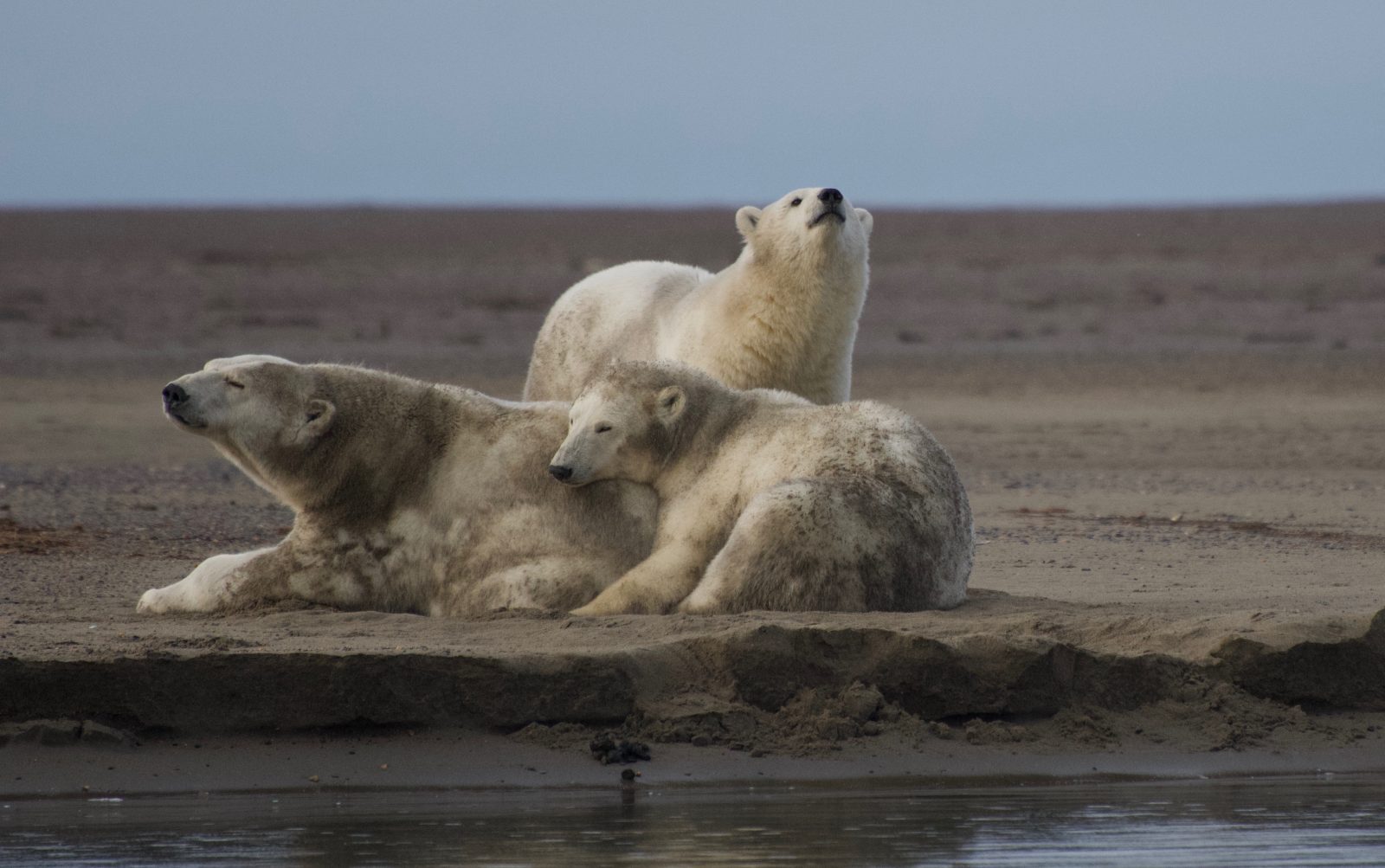
Court action calls for stop to ConocoPhillips’ harmful Willow construction
We filed a motion in U.S. District Court today requesting a preliminary injunction and temporary restraining order to stop ConocoPhillips from starting harmful road construction and gravel mining in the western Arctic this winter. It also challenges the U.S. Fish and Wildlife Service’s failure to ensure impacts to polar bears will be mitigated.

Conoco intends to start work on its Willow project in early February, despite ongoing litigation and the harms that construction will do to fish, wildlife, wetlands, water and the community of Nuiqsut.
The company plans to build ice roads to the mine site and start blasting with dynamite to loosen gravel and then haul it out to build a road extending towards its proposed Willow facility. Problem is, this work poses immediate threats to the region and local people and advances a project with serious legal flaws.
A massive NEPA fail
The U.S. Bureau of Land Management approved the project after issuing an illegal and deficient environmental impact statement, prompting our lawsuit in November. The suit calls out the agency for failing to analyze the harms Willow will do to people and wildlife, yet approving the project without knowing key information about the proposal and likely impacts.
People in Nuiqsut would experience even more pollution, loud and persistent blasting, and ongoing industrialization that degrades their health and well-being. Land, animals, and water would be impacted.
The legal point is this: BLM approved the project and all the human costs it extracts without even seeing permit applications or knowing the details—and now it’s rubber-stamping company permits as soon as they come in. Similarly, the Fish & Wildlife Service determined under the Endangered Species Act that Willow would not jeopardize threatened polar bears. But FWS based that finding on its assumption that a future, not-yet-determined permitting process required by a different law would mitigate impacts to bears.

That’s not how the permitting process is supposed to work. The company should apply for permits first, and then the agency can effectively do a NEPA and ESA analysis based on the details of the plan. Agencies cannot permit megaprojects based on vague plans and assumptions that an oil company can expand the exploitation of the Arctic as it pleases, no matter who or what pays for it with their health and well-being.
It’s time to make health a priority again
The motion we filed today, Dec. 23, asks the court to stop all Willow project winter activities —gravel mining and road construction — until it has time to evaluate the entire case. It also requests a ruling on the injunction by Feb. 1, the day before Conoco intends to begin winter construction activities.
We, along with and because of our clients, know the urgency of protecting the health of the Arctic and all its living communities.
“We have experienced rising health issues, and the destruction of traditional practices and food sources because of oil extraction and industrialization on the Arctic Slope,” said Siqiñiq Maupin, executive director of Sovereign Iñupiat for a Living Arctic. “We have experienced the silencing and dismissiveness of public agencies that are supposed to listen to us fully, to understand and take into consideration our concerns, and to protect the health and well-being of all of us, not just the profit interests of corporations. We need the exploitation of the Arctic to stop, and the prioritization of our health and well-being to begin again.”
Law firm Trustees for Alaska represents six clients in the lawsuit: Sovereign Iñupiat for a Living Arctic, Alaska Wilderness League, Defenders of Wildlife, Northern Alaska Environmental Center, Sierra Club, and The Wilderness Society.


